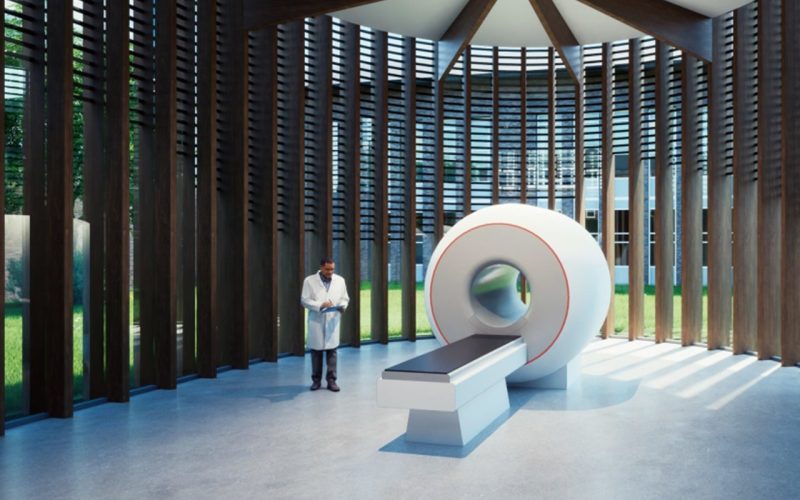A consortium of seven partners, led by Radboud University’s Donders Institute for Brain, Cognition and Behaviour and in which UMC Utrecht is also closely involved, receives an NWO Roadmap grant of 19 million euros. With this, the first MRI scanner in the world will be built in Nijmegen with a magnetic strength of 14 Tesla, suitable for research with humans.
About the importance of this new scanner for medicine, Dennis Klomp, professor of high-precision structural and metabolic imaging at UMC Utrecht, says: “With this most powerful MRI in the world, we can gain insight into the metabolism of diseases in humans without surgery or biopsy and how they can be influenced with medication. We will use the high spectral and spatial resolution of the 14T MRI to study new treatments of heterogeneous tissues such as tumors.”
UMC Utrecht has had a powerful (7T) MRI scanner at its disposal since the end of 2007. It is used for scientific research, but has also already found its way into the clinic. One application is better recognition of the location – and thus better treatment – of epilepsy. Utrecht is now playing an important role in the realization of a new, even more powerful MRI scanner. “Thanks to two Utrecht discoveries – new antennas that get the radiofrequency field better into the body and the switch from anatomical to metabolism imaging (METAscan) – the process became possible to start realizing an affordable MRI scanner with a strength of as much as 14 tesla,” says Klomp.
“The new MRI scanner will be placed on the premises of the Radboudumc in Nijmegen, but will be available to all scientists in the Netherlands. We will also cooperate with international partners,” said David Norris, project leader and professor of MRI techniques at Radboud University’s Donders Institute. “With this new sensitive scanner, we want to enable new areas of research for the entire scientific community.”
The ‘Dutch National 14Tesla MRI Initiative in Medical Science’ (DYNAMIC) is a project consisting of seven partners: Radboud University (lead applicant), Amsterdam UMC, Leiden University Medical Center (LUMC), Maastricht University, Radboudumc, (Spinoza Centre for Neuroimaging – KNAW and University Medical Center Utrecht (UMCU).
